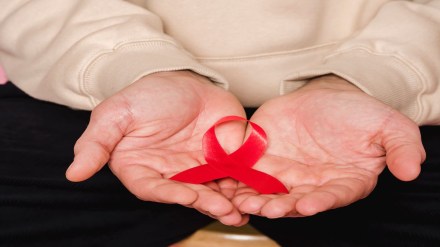World AIDS Day 2023: Acquired Immunodeficiency Syndrome (AIDS) remains a global health concern, necessitating ongoing efforts in prevention and education. Preventing AIDS requires a multifaceted approach that includes comprehensive sex education, widespread awareness campaigns, and access to healthcare services.
Every year December 1 is marked as World AIDS Day which serves as a poignant reminder of the global impact of HIV/AIDS and the ongoing need for concerted efforts in prevention.
Here’s a closer look at key strategies to curb the spread of HIV and reduce the incidence of AIDS:
- Comprehensive Education and Awareness: Education is a powerful tool in the fight against HIV/AIDS. Comprehensive sex education programs that cover the biology of HIV, safe sex practices, and the importance of regular testing are essential. Promoting awareness through community initiatives, school programs, and media campaigns helps dispel myths, reduce stigma, and encourage responsible behavior. By fostering a culture of understanding and empathy, we can create an environment where individuals feel empowered to protect themselves and their communities.
- Regular HIV Testing: Early detection is key to preventing the progression of HIV to AIDS. Encouraging regular HIV testing is critical for those at risk. Testing should be accessible, confidential, and destigmatized. Mobile clinics, community health centers, and home testing kits can provide convenient options for individuals to know their HIV status. The sooner someone knows their status, the sooner they can access treatment, reducing the risk of transmission to others.
- Condom Promotion and Distribution: Promoting the consistent and correct use of condoms remains a fundamental strategy in preventing the sexual transmission of HIV. Educational campaigns should emphasize the importance of condoms in protecting against not only HIV but also other sexually transmitted infections. Condom distribution programs in schools, healthcare settings, and communities can increase accessibility, ensuring that individuals have the tools they need to practice safe sex.
- Accessible Healthcare Services: Ensuring access to healthcare services, including antiretroviral therapy (ART), is crucial in managing HIV and preventing the development of AIDS. Efforts should be made to eliminate barriers to healthcare, such as cost and geographic location. Providing support for those living with HIV, including mental health services and counseling, contributes to overall well-being and adherence to treatment plans.
- Community Mobilization: World AIDS Day is an opportunity to unite communities in the fight against HIV/AIDS. Community leaders, organizations, and influencers can leverage their platforms to raise awareness, organize events, and encourage HIV testing. Creating supportive environments that embrace inclusivity and non-judgmental attitudes reduces stigma and discrimination, facilitating open discussions about sexual health.
